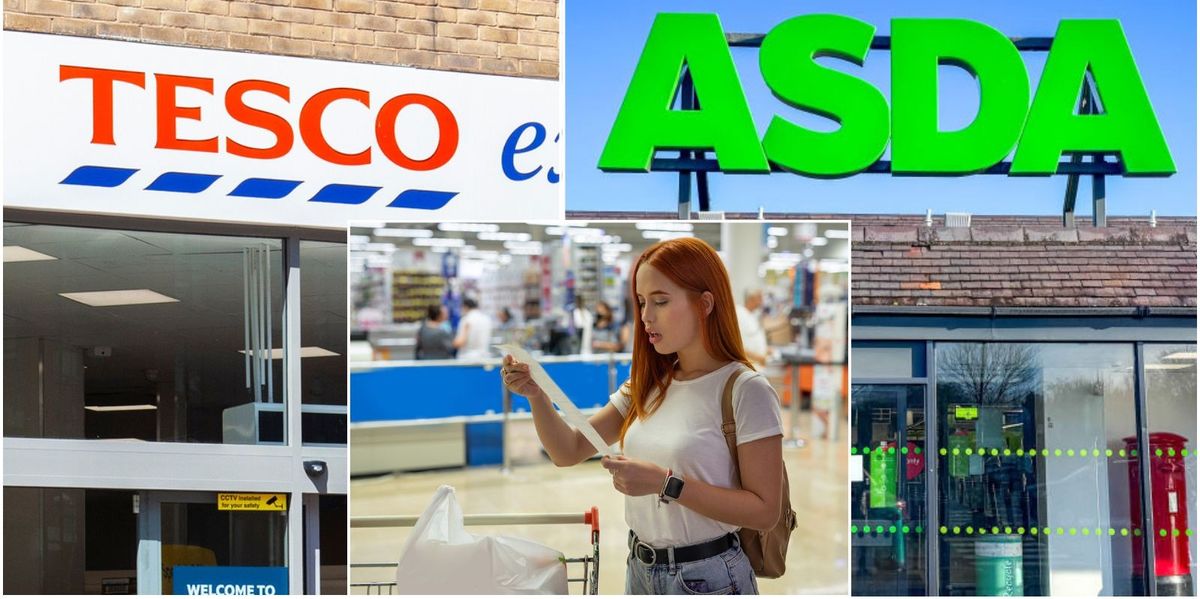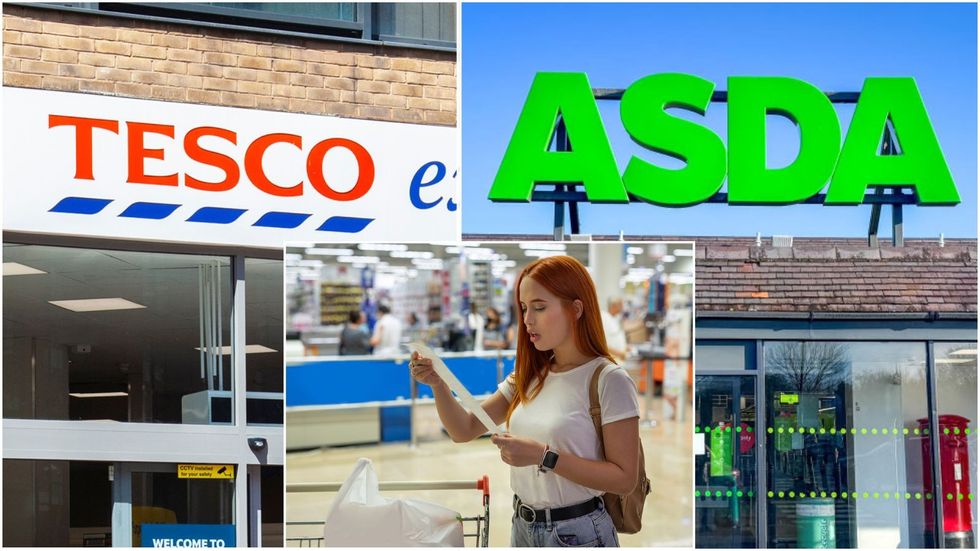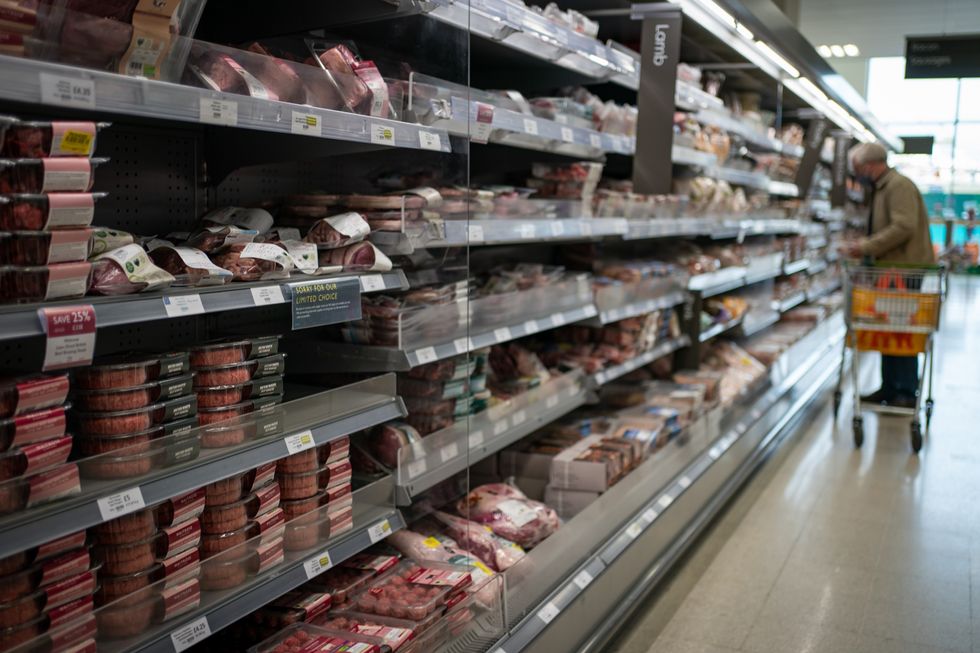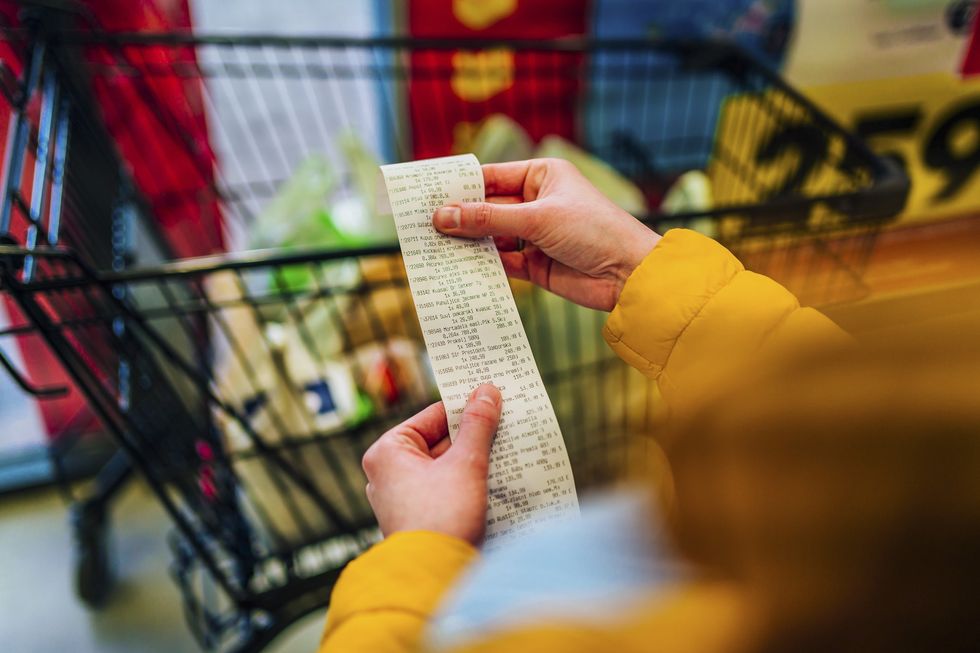



Families are at risk of paying an extra £275 towards their grocery bill this year due to "rollercoaster food inflation", according to new research on the cost of living crisis from Ocean Finance.
This latest warning comes as food price inflation in the UK already sits at 4.2 per cent, with financial analysts predicting the current figure will climb in the months ahead before Christmas.
Since the Covid-19 pandemic, Britons have been forced to contend with inflation-hiked prices on goods and services with Ocean Finance's research suggesting this will likely continue.
According to economists, shoppers who buy their groceries at Tesco, Sainsbury's, Aldi, Lidl, Asda, and Morrisons will notice another "painful hike in food prices" of up to six per cent.

Tesco, Sainsbury's, Lidl, Aldi, and Morrison's prices will reflect the rise
|GETTY
Consumer money expert Fiona Peake from Ocean Finance warned: "We're back on the rollercoaster of food inflation. Prices soared after the war in Ukraine, settled briefly last year, and now we're seeing another rise."
Approximately 14 million Britons now struggle to put food on their tables, with online searches for 'cheap food; surging dramatically over the past month.Essential items bear the brunt of these increases.
Market analysts note that fresh produce, dairy products and meat face the steepest price rises due to their vulnerability to energy, labour and transport costs.
Recent increases to the National Living Wage and employer National Insurance contributions have filtered through to consumer prices, supermarket giants have claimed.
 Food and drink inflation has particularly hit Britons in recent years | PA
Food and drink inflation has particularly hit Britons in recent years | PA
Ms Peake acknowledged that,while some workers have seen wage rises, these fail to match the pace of escalating living costs. "The items seeing the steepest price hikes are often the ones we rely on most," the finance expert explained.
For those struggling with mounting expenses, Ms Peake advised contacting energy suppliers, local councils or lenders directly. "Many offer hardship schemes, but they won't know you need help unless you ask," she noted.
Economists note that the compounding effect of these various price increases threatens to overwhelm household budgets already stretched thin.
According to Ms Peake, timing supermarket visits thirty minutes before closing is a useful way to secure reduced-price items marked with yellow stickers.
She noted that many British households now find themselves in precarious positions where even modest increases in weekly shopping costs could prove devastating, with financial pressure extending well beyond supermarket shelves.
Energy costs and fuel prices continue their upward trajectory, while telecommunications companies reinstate inflation-linked price increases for broadband and mobile services.

The food prices will go up before Christmas
| ASDALoyalty schemes combined with cashback applications like Shopmium can deliver substantial savings.
Frozen aisles often stock identical branded products at lower prices than their fresh counterparts, with the added benefit of reduced waste.
Shopping frequency matters too. "Weekly shops sound sensible, but they often lead to waste," Peake observed.
More frequent, smaller shopping trips enable better utilisation of existing supplies and increased opportunities for discounted items.

The squeeze on Britons' pockets looks set to continue
|GETTY
Consumers should scrutinise multipack pricing carefully. "Retailers know we assume bulk equals value, but single units on offer can work out cheaper," she warned.
UK food prices saw significant rises from early 2022, peaking at a 19.1 per cent annual increase in March 2023, before a sustained period of falling inflation began, although prices remained high.
In contrast, February 2015 saw a record low in food inflation at - 3.3 per cent.
Global food prices also experienced sharp increases, driven by factors like supply chain issues and the war in Ukraine are significant factors in the supply chain costs being pushed onto customers.
